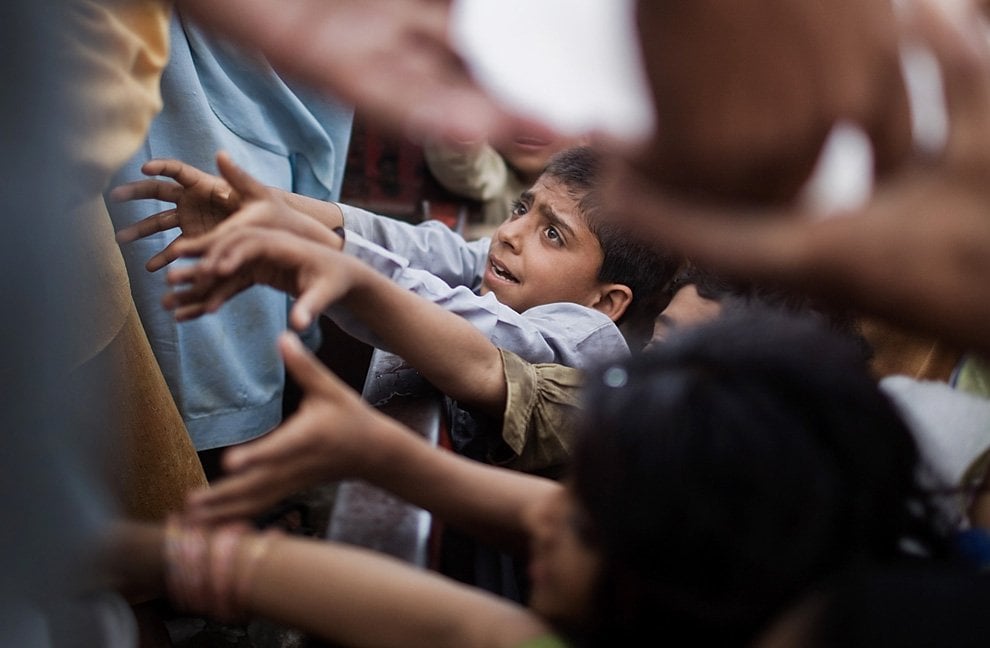Unravelling the conundrum of failed welfare policies
Despite subsidies and social programmes, inflation has driven 5% rise in poverty

The most recent World Bank report, released in October 2023, sheds light on Pakistan’s concerning poverty landscape. It’s estimated that in 2023, the poverty headcount has surged to 39.4%, a worrying increase of 5% from the year before.
What is particularly noteworthy is that the poverty level now is higher than it was five years ago. This is a worrisome departure from Pakistan’s earlier success in steadily reducing poverty over the preceding decade.
Despite Pakistan’s recent focus on welfare, including increased spending on social programmes and widespread subsidies, the results have been concerning.
Efforts such as the Benazir Income Support Programme (BISP) aim to safeguard the underprivileged, while subsidies aim to shield the masses and the economy from the shock of rising food and energy prices.
However, citizens are facing more difficulties, with rising poverty rates and stagnant per capita income over the past five years. This outcome contradicts the anticipated improvements.
The preceding government purposefully ramped up spending on subsidies and social protection programmes in pursuit of a stronger social welfare system. Over the past five years, allocations for subsidies, BISP, and social protection surged, averaging 14.2% of the federal government’s expenditure – an uptick from the previous five-year average of 7%, which saw spending on a declining trend.
The trajectory depicts a clear increase: it began at 5.9% in 2019, doubled for the following two years, and peaked at an unprecedented 23% in 2022.
The effectiveness of these policies remains in question. While correlation isn’t causation, one must question why poverty reduction has reversed despite a greater focus on social welfare and subsidies?
The primary driver behind the resurgence of poverty has been the unexpected surge in inflation. The surge has had far-reaching implications on the overall cost of living, impacting the populace at large.
However, the middle class and impoverished citizens are the most affected, as their real incomes diminish and fail to keep pace with the inflationary pressures. The runaway inflation has rendered basic necessities prohibitively expensive, resulting in an estimated 20 million people slipping into poverty – a stark contrast to declining poverty rates in previous years.
The government attributes high inflation to the international commodity super cycle; however, this claim is untrue. Other countries in the region haven’t witnessed such a spike in inflation. This is because inflation is inherently a local phenomenon shaped by local policy decisions.
At its core, fiscal indiscipline stands as the root cause. The surge in subsidies amid growing fiscal imprudence and record deficits is not without repercussions. The government finds itself in a net borrowing position, with soaring debt levels nearing the point of unsustainability.
Financing the escalating fiscal deficits through bank borrowings has fuelled the expansion of the monetary base, contributing significantly to the inflation rate, which peaked at an alarming 38%.
Contrary to their intended purpose, substantial subsidies have negatively impacted the economic landscape by distorting the price system. The resulting adjustments are considerably more painful and less subtle.
While broad subsidies lack merit, there is a case for a targeted programme like BISP. However, it demands a more deliberate and focused strategy with clear milestones to uplift families from poverty within specified timeframes and the establishment of performance metrics to gauge progress.
There’s a necessity to transition away from providing indefinite monthly stipends and to measure progress not solely based on the number of beneficiaries and total cash disbursed.
While there is much rhetoric advocating for the continuation of subsidies and the expansion of social protection, these measures rarely assist people in breaking out of the poverty cycle. This is evident in recent years despite a focus on welfare policies.
It’s apparent that the current approach falls short, especially considering Pakistan’s consistent reduction in poverty rates over the previous decade with relatively modest subsidies and safety nets. The unintended consequences – high inflation and a reversal in poverty reduction – underscore the necessity for a more balanced and sustainable strategy.
The best way forward is for the government to stop fuelling inflation. It needs to prioritise fiscal prudence across its expenditure spectrum, which involves enhancing the efficiency of public spending, reducing the government’s footprint, phasing out subsidies, and establishing clear milestones to limit welfare spending.
In essence, creating a supportive business environment and expanding employment opportunities through growth stand as the viable means to alleviate poverty. Prioritising fiscal responsibility and nurturing economic growth are crucial steps towards reorienting Pakistan’s course for effective poverty alleviation.


